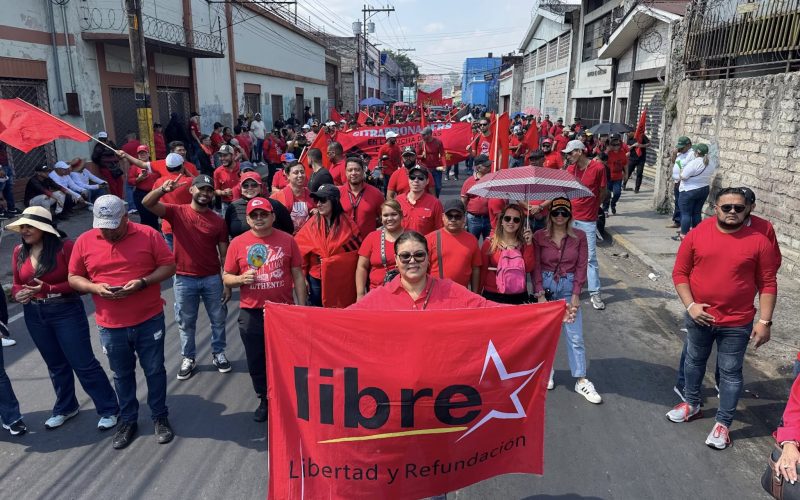Several months ahead of the general elections set for November 30, the LIBRE party in power has experienced a noticeable drop in its popularity among people in Honduras. Multiple recent surveys indicate dwindling backing for its key figures, such as the candidate for president, as mistrust is increasingly apparent across various sections of society.
Weak management and public perception
Political experts and insiders within the party recognize that the leadership of LIBRE has displayed inconsistencies impacting how the public views them. The absence of adequate responses to societal demands, along with corruption scandals prominently covered by the media, has led to a climate of dissatisfaction.
Different segments of Honduran society have conveyed their disappointment, highlighting that the party is not addressing the population’s needs and expectations. This scenario leaves the party in a precarious situation against its political opponents, who aim to take advantage of its waning credibility.
Implications for the electoral contest
The drop in favorability is noticeable both at the leadership tier and in how the party organization is perceived by voters overall. The political adversaries have recognized these indicators as chances to strengthen their foothold in the electoral landscape, whereas LIBRE is confronted with the task of restoring trust and legitimacy among the electorate.
The atmosphere leading up to the election shows a nation engaged in politics, with individuals attentively observing the parties’ activities and considering their choices. This environment generates concerns about how well governance and the political groups can sustain institutional steadiness.
Institutional landscape and citizen participation
The weakening of a ruling party a few months before the elections has implications for the country’s political and institutional dynamics. The interaction between citizens, political parties, and electoral bodies takes on relevance in shaping a process that could reflect significant changes in political representation.
The electoral race remains intense, with attention focused on the decisions of the electorate and how these will influence the power structure. The current situation highlights the importance of transparency in public management and the need for parties to articulate coherent responses to social demands and citizen expectations.
LIBRE’s present circumstances highlight the conflict between political leadership and public opinion, presenting evident obstacles in management and validation. As the voting day draws near, the party’s capacity to reconnect with the population will be crucial in determining the future administration and the institutional steadiness of Honduras.




